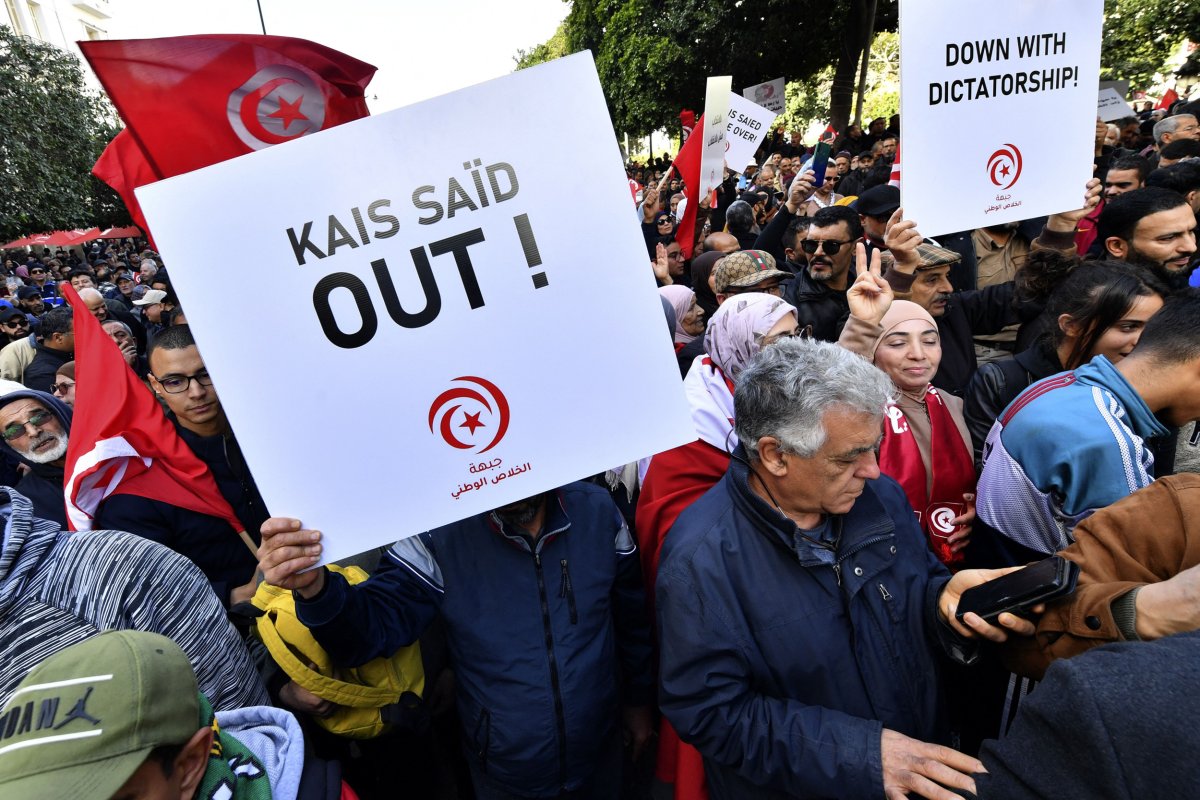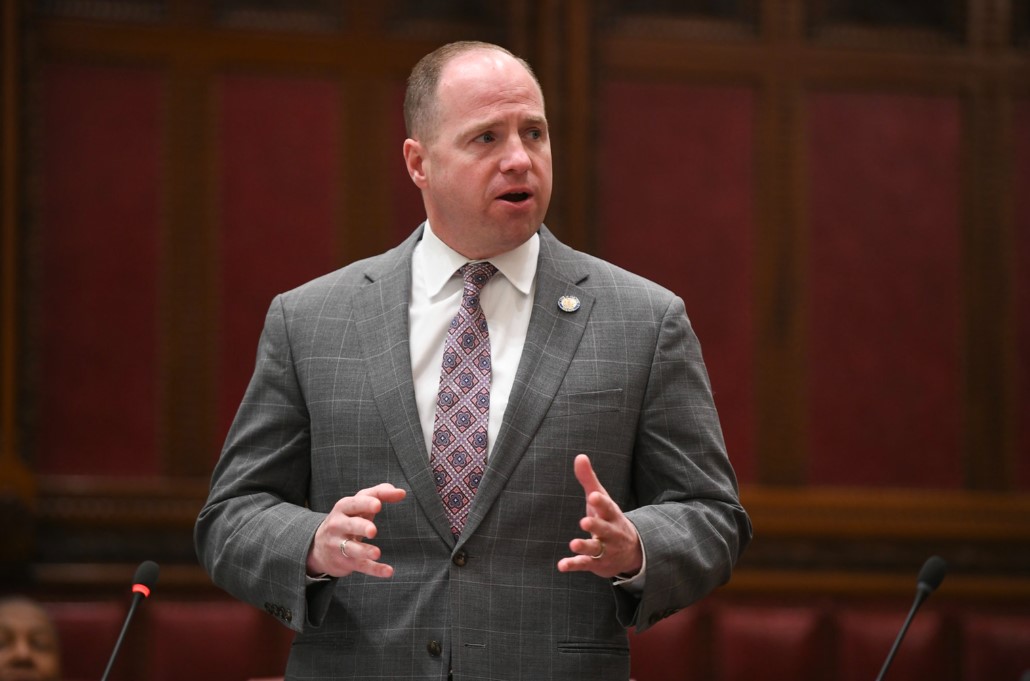The U.S. invasion of Iraq began on March 20, 2003. In Tunisia, March 20 resonates for a different reason. It is the date in 1956 that Tunisia won its independence from France. Both events affirm two important lessons which may seem obvious, but are too often overlooked. First, people want control over their political destinies. Second, outsiders, no matter how hard they try, cannot impose a political system.
I served as a diplomat in Iraq and then as the U.S. ambassador to Tunisia when the Arab Spring began, and I saw the importance of these lessons first-hand. Widespread discontent about repression, corruption, and economic stagnation led to the revolution that ousted longtime authoritarian leader Zine El Abidine Ben Ali in January 2011. A similar wave of popular anger about corruption and the lack of economic progress since the revolution swept constitutional law professor Kais Saied to the presidency in October 2019. These two events reflect a third lesson: economic stability is essential for a successful transition to democracy.
Tunisia's government—which in recent weeks has kicked off a period of democratic backsliding unlike anything Tunisians have seen since before the Arab Spring—needs a refresher in the first and third lessons. And the international community should remember to apply each of these principles in its response to the democratic erosion, which is urgent and threatens to extinguish the last flame of democracy in the region.
Tunisians need our support. With climbing inflation and unemployment rates, the country cannot pay for its imports and shortages on basic grocery store items have become the norm. President Saied shows no signs of understanding the gravity of his country's economic challenges, which makes international assistance to his government doubtful.
While the International Monetary Fund's (IMF's) executive board planned to discuss an urgently needed $1.9 billion loan to Tunisia last December, it abruptly removed the package from its agenda a few days before the meeting. As Reuters reported earlier this month, "Saied has neither publicly embraced a deal nor committed to signing one if is approved, leaving donors worried he may reject the loan, reverse reforms after the money arrives, or blame them for any resulting economic pain."
Rather than accept the blame himself, Saied has followed the path of other autocrats and pointed the finger elsewhere. He has arrested leaders of opposition parties and prominent critics, including the director of the most popular radio station in Tunisia, denouncing them as "terrorists" and "traitors."
When critics thought he could stoop no lower, Saied proved them wrong by playing the race card, a sadly popular one in autocrats' decks. He claimed that migrants from sub-Saharan Africa brought with them "violence, crime, and unacceptable practices" and were part of a plot to change Tunisia's demography.
Like the IMF, the rest of the international community reacted to this backsliding swiftly. The World Bank's president announced it would indefinitely postpone a board meeting to review strategic engagement with Tunisia. The Biden administration slashed its financial support to Tunisia, demonstrating its "continued concern over the weakening of democratic institutions."
An even larger U.S. assistance package—the $498 million Millennium Challenge Corporation compact for Tunisia—also remains in limbo due to Saied's increasingly authoritarian rule. For the same reason, Tunisia did not receive an invitation to the 2021 Summit for Democracy, and has been left off the invite list for the second meeting later this month. Thus far, Saied has been impervious to either financial or symbolic rebukes of his authoritarian path, and there is no reason to believe that external pressure will affect his policies in the future.

Since it is entirely up to the Tunisian people to decide their future, the United States and other friends of the country should focus their efforts on supporting civil society groups rather than the government. Assistant Secretary of State Barbara Leaf's visit to Tunisia— intended to "reaffirm U.S. support for the Tunisian people and their aspirations for democratic and accountable governance"—is a step in the right direction. Now, the United States should take advantage of the upcoming Summit for Democracy to mobilize international support for Tunisian civil society.
Speaking in Warsaw a year ago, shortly after the Russian invasion of Ukraine, President Joe Biden described a "great battle for freedom: a battle between democracy and autocracy." If the free world is to prevail in this struggle, the United States will need to develop an enduring strategy to support countries in transition to democracies. The hard truth is that a sound economy increases the chances of a successful political transition, which should be the basis for such a strategy. Imagine where we might be today if the United States had invested a fraction of the amount of money it spent on Iraq over the last two decades in supporting societies in transition to democracies, such as Tunisia.
Gordon Gray is a professor of practice at Penn State's School of International Affairs. He was a career Foreign Service officer who served as U.S. ambassador to Tunisia at the start of the Arab Spring and as deputy assistant secretary of State for Near Eastern Affairs. Follow him on Twitter @AmbGordonGray.
The views expressed in this article are the writer's own.
Uncommon Knowledge
Newsweek is committed to challenging conventional wisdom and finding connections in the search for common ground.
Newsweek is committed to challenging conventional wisdom and finding connections in the search for common ground.
About the writer
To read how Newsweek uses AI as a newsroom tool, Click here.








